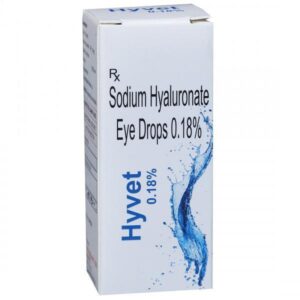NOT AVAILABLE + SODIUM HYALURONATE + HYALURONIDASE
Not Available: I apologize, but without a specific drug name, I cannot provide accurate information about its use, mechanism of action, dose, and side effects. Please provide the specific name of the drug you would like information about so that I can assist you better.
Sodium Hyaluronate: Sodium Hyaluronate, also known as hyaluronic acid, is a naturally occurring substance found in the human body. It is widely used in medicine, particularly in ophthalmology, orthopedics, and cosmetic procedures.
Use:
Sodium Hyaluronate is commonly used as a viscosupplement, meaning it is injected into joints to relieve pain and improve mobility in conditions such as osteoarthritis. It can also be used in ophthalmic surgery as a lubricating agent or as a filler in cosmetic procedures to reduce the appearance of wrinkles and fine lines.
Mechanism of Action:
The exact mechanism of action for Sodium Hyaluronate is not fully understood. However, its high molecular weight and ability to bind to water molecules contribute to its lubricating and cushioning properties. In joint injections, it acts as a lubricant and shock absorber, reducing friction and protecting the joint surface. It also has anti-inflammatory properties that may help reduce pain and inflammation.
Dose:
The dose of Sodium Hyaluronate depends on the specific condition being treated and the formulation used. Injections into joints are typically administered as a single injection or a series of injections spread over days or weeks. The dose and frequency will be determined by the prescribing healthcare professional.
Side Effects:
Overall, Sodium Hyaluronate is considered safe and well-tolerated. However, like any medication, it may have side effects. Some potential side effects include:
1. Localized pain, swelling, or redness at the injection site.
2. Allergic reactions, although rare, may include rash, itching, or difficulty breathing.
3. Temporary stiffness or swelling of the joint.
4. In rare cases, joint infection or bleeding.
It is important to note that these side effects are uncommon, and most people tolerate Sodium Hyaluronate injections well. However, it is essential to consult with a healthcare professional before using this medication to discuss potential risks and benefits, as well as any individual factors or contraindications that may apply.
Hyaluronidase: Hyaluronidase is an enzyme that is naturally found in the body. It is used as a medication to increase the absorption and dispersion of other injected drugs. It is commonly used in medical procedures to help fluids and medications spread more easily throughout the body.
The mechanism of action of hyaluronidase involves breaking down hyaluronic acid, a substance that is present in connective tissues, including the skin, joints, and eyes. By breaking down hyaluronic acid, hyaluronidase increases the permeability of the tissue, allowing for easier dispersion and absorption of other medications.
Hyaluronidase is typically administered as an injection, either under the skin or into a muscle. The dose and frequency of administration depend on the specific procedure and the drug being used in combination with hyaluronidase. It is important to follow the instructions provided by the healthcare professional administering the medication.
Like any medication, hyaluronidase can have side effects. Common side effects include redness, itching, and swelling at the injection site. Some individuals may also experience allergic reactions to hyaluronidase, which can manifest as hives, rash, difficulty breathing, or swelling of the face, lips, tongue, or throat. In rare cases, more serious side effects such as infection or tissue damage at the injection site may occur.
It is important to inform your healthcare professional about any allergies or medical conditions you have before receiving hyaluronidase. They will be able to assess whether the medication is suitable for you and monitor you for any potential side effects during the treatment.

